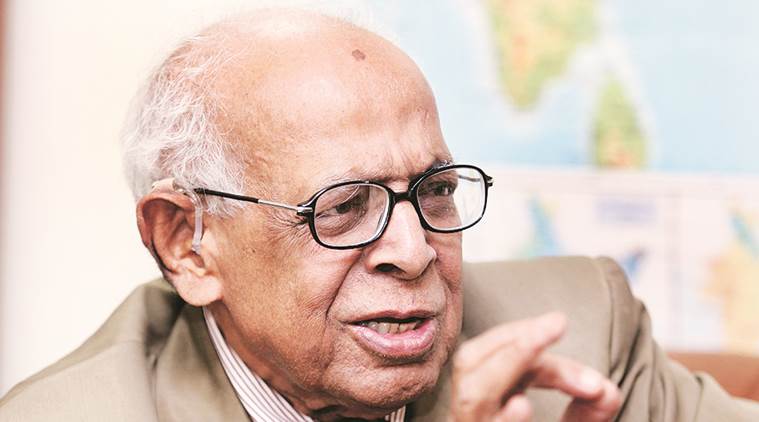Stay updated with the latest - Click here to follow us on Instagram
Former MP, diplomat Syed Shahabuddin dies at 82
The former diplomat was a leading light of the All-India Babri Action Committee, which sought to counter the Sangh Parivar's Ramjanmabhoomi movement.
 Syed Shahabuddin.
Syed Shahabuddin.
Former MP and diplomat Syed Shahabuddin, 82, died at a Noida hospital on Saturday. He was hospitalised two weeks ago after suffering from pulmonary complications. Shahabuddin, who had not been keeping well for the last few months, was among the most articulate post-Independence Muslim voices. He quit the Indian Foreign Service before joining politics in 1979.
Shahabuddin represented Bihar’s Kishenganj in parliament and served as a Rajya Sabha member between 1979 and 1996. He headed the All-India Muslim Majlis-e-Mushawarat from 2004 to 2007. The former diplomat was a leading light of the All-India Babri Action Committee, which sought to counter the Sangh Parivar’s Ramjanmabhoomi movement. His primary concerns were protection of the Muslim Personal Law, safety and empowerment of the community.
Watch What Else Is Making News
Shahabuddin’s political career coincided with a string of developments like Moradabad riots (1980) and Babri Masjid demolition that shook the community. For disseminating his views, he relied upon a monthly journal, Muslim India, though many of his critics had an issue with this nomenclature. Their objection being that India has multiple religious identities, and therefore, he should have named it Indian Muslim.
Shahabuddin courted controversy when he wrote an open letter to then Gujarat chief minister Narendra Modi regarding Muslim voters ahead of the assembly elections in November 2012. The letter maintained that the Muslims had not forgotten the 2002 Gujarat massacre but added that they had rebuilt their lives and had realised that they had “nowhere else to go”. “Muslim voters see some signs of change in your attitude,” he wrote. He added that they may join hands with Modi in rebuilding Gujarat if he took certain steps. Shahabuddin demanded that Modi tender a public apology for the 2002 riots, give compensation for the lives lost, rehabilitate displaced persons, rebuild 300 mosques, dargahs and mausoleums destroyed during the violence. Many Muslim organisations promptly disassociated themselves from Shahabuddin’s stand. Whatever one’s view, it would not be fair to link Shahabuddin’s letter with any personal ambition. It goes to his credit that all his life, he showed no weakness for trappings of power. He did not lobby for any ministerial position even while he could have got it without difficulty.
Shahabuddin had the courage of conviction and was candid when he expressed himself. This single trait won him as many detractors as admirers.







